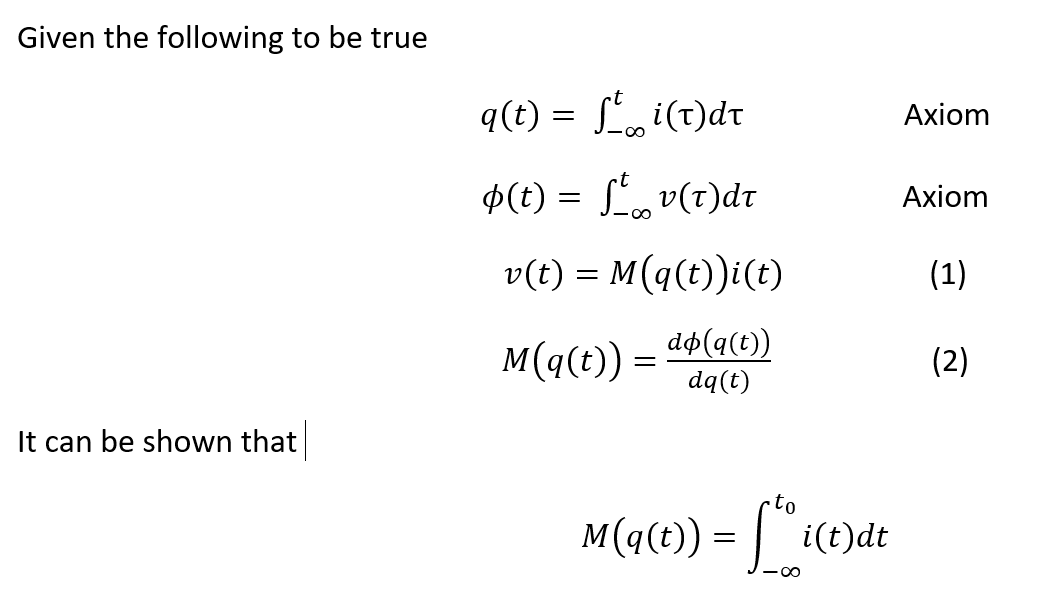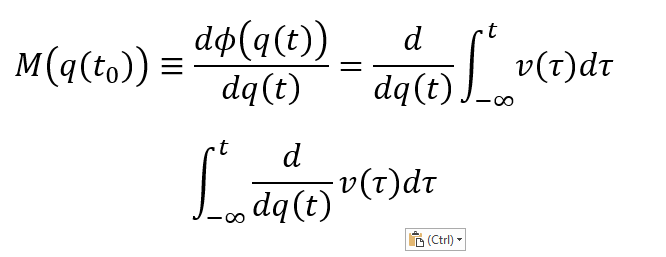I'm going through Chua's 1971 memristor paper. I am stuck on a part that I believe in pretty crucial. It is
Observe that the, value of the incremental memristance (memductance) at any time to depends upon the time integral of the memristor current (voltage) from t = - co to t= to. Hence, while the memristor behaves like an ordinary resistor at a given instant of time to, its resistance (conductance) depends on the complete past history of the memristor current (voltage). - Page 511(page 5 of the pdf) top of the right column
http://www.cpmt.org/scv/meetings/chua.pdf
I'm not seeing the integral from any of the equations 1 through 4 that are presented in the paper.
When I read the section in question, this is what comes to mind, but I cannot see the derivation. Am I thinking about this incorrectly?
To expand further on what I have tried
Does anyone see anything glaringly wrong with my math? Is it a physics thing possibly? I'm not seeing how current gets into this at all. I realize memristors is a rather newish topic that not many people are aware of or even care about.


